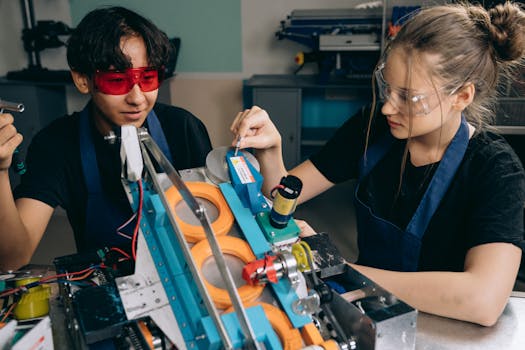
The Future of Work: Trends to Watch in 2025
The Future of Work is undergoing a significant transformation. As we approach 2025, it’s essential to understand the trends that will shape the workforce and the economy. From remote work to artificial intelligence and automation, these trends will have a profound impact on how we work and live.
Section 1: Introduction to the Future of Work

The concept of work has undergone significant changes over the years. With the rise of technology, globalization, and shifting workforce demographics, the future of work is more uncertain than ever. However, by understanding the trends that are driving this transformation, we can prepare ourselves for the challenges and opportunities that lie ahead.
The first trend to watch is the growth of remote work. With the advancement of digital communication tools and cloud computing, remote work has become more accessible and convenient. Many companies are adopting remote work policies, and it’s estimated that by 2025, over 70% of the workforce will be working remotely at least one day a week.
Section 2: Trends Shaping the Future of Work

Another significant trend is the rise of artificial intelligence and automation. AI and automation are transforming the way we work, making many tasks more efficient and reducing the need for human labor. While this may seem like a negative development, it also creates new opportunities for workers to focus on high-value tasks that require creativity, problem-solving, and human interaction.
Other trends to watch include the growth of the gig economy, the increasing importance of data analytics, and the need for lifelong learning. The gig economy is changing the way we work, with more people engaging in short-term, flexible work arrangements. Data analytics is becoming essential for businesses to make informed decisions, and lifelong learning is necessary for workers to stay relevant in a rapidly changing job market.
Section 3: Preparing for the Future of Work

So, how can we prepare for the future of work? The first step is to develop the skills that are in demand. This includes technical skills such as coding, data analysis, and digital marketing, as well as soft skills such as communication, collaboration, and problem-solving.
Another essential step is to be adaptable and open to change. The future of work is uncertain, and being able to pivot and adjust to new developments is crucial. This includes being willing to learn new skills, take on new challenges, and embrace new technologies.
Section 4: Conclusion

In conclusion, the future of work is undergoing a significant transformation. By understanding the trends that are driving this change, we can prepare ourselves for the challenges and opportunities that lie ahead. Whether you’re a worker, a business leader, or a policymaker, it’s essential to stay informed about the future of work and to take action to prepare for the changes that are coming.
The future of work is not just about technology or trends; it’s about creating a better future for ourselves and for generations to come. By working together and embracing the changes that are taking place, we can create a brighter, more prosperous future for all.





